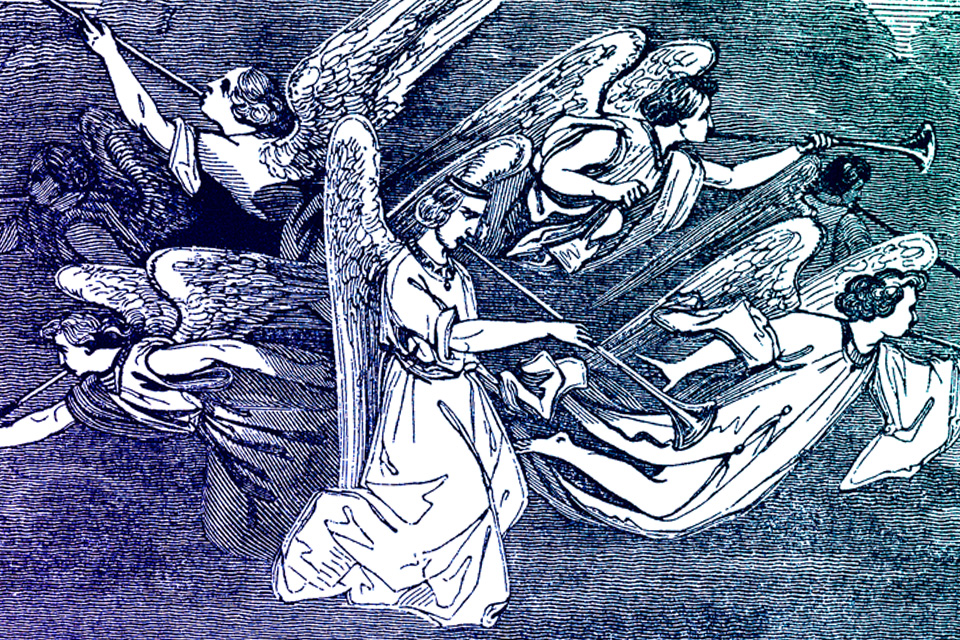Mutual Learning: Yi He Brings New Course Into Non-Traditional Dissertation Project

Photo Credit: Getty Images
February 16, 2024
Abigail Arnold | Graduate School of Arts and Sciences
For sixth-year English PhD student Yi He, teaching and learning are intertwined. For her dissertation, not only is she writing a series of essays about her research topic, Puritan media; she’s also creating an online course about the Puritans and advancing her own understanding of the topic at the same time. This dissertation project was made possible by the Brandeis English department’s 2021 decision to change the structure and requirements of their PhD program, including allowing dissertations beyond the traditional book-length manuscript that the discipline usually demands. He took this opportunity to bring her topic to new audiences outside the academy. Here’s how she’s creating her non-traditional dissertation.
He’s own research focuses on Puritan media, which helped inspire the idea of creating a digital course. She said, “I am not personally a digital media-phile, but I really wanted to investigate newer media or technology devices.” She also felt that approaching her topic through the perspective needed to teach novices about it would help develop her own understanding. “Teaching gives you another angle to think about the Puritans,” she said. “When you teach, you can’t start with all the scholarly conversations, because frankly they’re not that interesting for students. So you have to research in a different way to teach the things that matter and help people understand history and their lives. Teaching is a way for you to learn and consider things–by the end of teaching something, you will yourself have figured out things.”
She also used pedagogical principles she had learned through her experiences at Brandeis when thinking about how to set up the course. She took a Learning Experience Design course through Rabb, funded by a Career Grant from the Mandel Center for the Humanities. Since she took the class around the same time she developed her dissertation prospectus, she was able to incorporate what she learned, including information about prototyping (the process of developing multiple iterations of the structure of course materials) and learning objectives. “As I’ve been developing this, I recently assigned learning objectives for each of my lectures. They really help you to focus what you’re doing because you have to have goals. It helped me identify that on a basic level, I just want to help students get a sense of who the Puritans were and how they ticked,” said He. Because she is also writing a series of essays, focused on angels in Puritan media, as a component of her dissertation, He is planning to use her course as a way to widen her focus. “The course is a way for me to understand the Puritans more and will give me a chance to explore questions about the role of Massachusett and Wampanoag people who interacted a lot with the Puritans and had their own media ecologies, which I don’t talk about as much in my essays,” she said. “The course lets me consider the media ecology more broadly, and the essays are a way to hone in. I highlight the same topic in different ways.”
He hopes that her course will open opportunities for others’ learning. “I thought there wasn’t a way for young professionals who are working and have busy lives and maybe kids to learn about Puritans. There are short ten to fifteen minute lectures, and they’ll be on podcast platforms so people can listen easily. They can tailor it to what they’re doing and jump in at different places,” she said. Through this project, He’s own research and learning will be open to people beyond Brandeis or English scholars.
He encourages other PhD students who are considering non-traditional dissertation projects to go for it. For those who are looking for other examples, she recommends the website Next-Generation Dissertations as a resource. “Be brave and plunge in!” He said. “When it’s not established, it feels different, but it’s really worthwhile. It makes you grow a lot.”
Following the English department’s curricular changes, several students are working on non-traditional dissertation projects. Follow our links to read about two others, Nayoung Kim and Sarah Perkins. You can learn more about the English PhD program on our program page and the department website.






